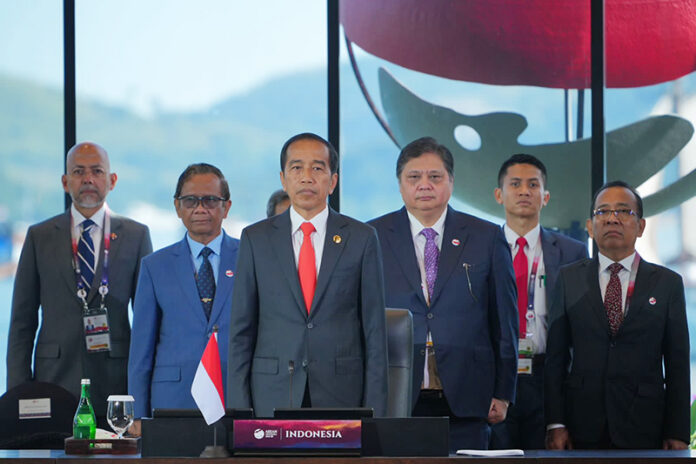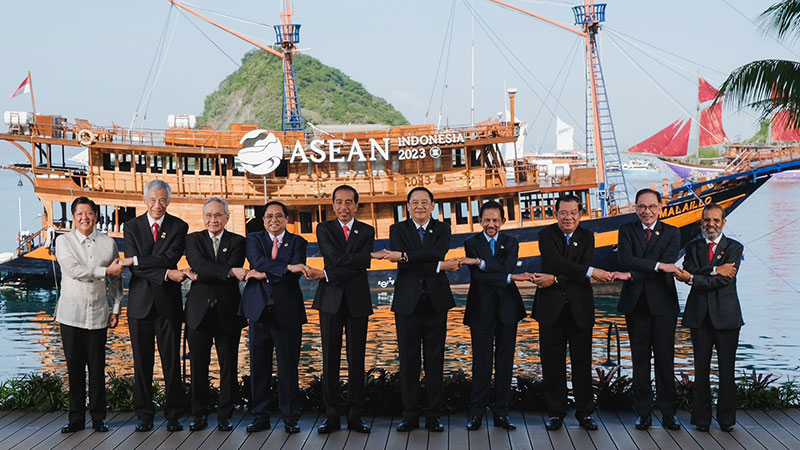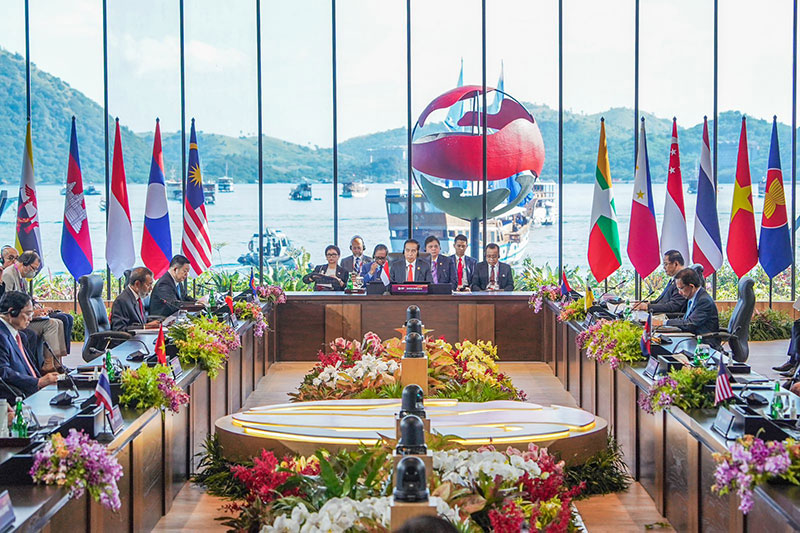Indonesian President Joko Widodo
Indonesian President Joko Widodo speaking during the 42nd ASEAN Summit Plenary Meeting, which was held on 10 May at Labuan Bajo, said that the challenges in the world and region, even internally, are increasingly complex, so ASEAN’s relevance is also increasingly questioned. “ASEAN continues to be highlighted by the world. Can ASEAN centrality be maintained amidst the vortex of big country rivalries?” asked President Jokowi.
The Plenary Session of the ASEAN Summit focused on interpreting the theme of Indonesia’s Chairmanship, ASEAN Matters: Epicentrum of Growth. In the ASEAN Matters aspect, three things need to be done. First, ASEAN must be effective, where ASEAN needs a more transformative, effective, and fast approach for the common good.
“We need an effective and timely decision-making mechanism, in the midst of emergency situations,” said the President. The preparation of the codification mechanism remains based on the ASEAN Charter, which has always been the guiding principle of ASEAN.
Second, ASEAN must be relevant, which means it must be able to address current and future challenges, including the short term, such as the situation in Myanmar, and the long term, such as respecting human rights. Third, ASEAN must be beneficial to the people in the region and the world, amidst the current difficult crisis.
Meanwhile, from the Epicentrum of Growth aspect, the President reminded that ASEAN needs to strengthen regional resilience and connectivity as a foundation for survival. “This is why Indonesia is determined to ensure regional resilience in the food, energy, financial stability, and connectivity sectors as well as health architecture,” President Jokowi explained.
The built energy security is expected to support the acceleration of the energy transition. “For this reason, the development of the electric vehicle ecosystem in the region is a priority, encouraging ASEAN to become a global electric vehicle hub, and strengthening efforts to decarbonize the transportation sector,” said President Jokowi.
President Jokowi also emphasized the need for regional financial policies alignment to complement the concrete efforts to enhance regional financial stability that have been made. These efforts are carried out through the implementation of local currency transactions in several ASEAN countries and digital payment connectivity between countries with QR-Code technology.
In line with this, at the 22nd ASEAN Economic Community Council Ministerial Meeting held on 7 May at Jakarta, two Leaders’ Declaration related to the development of an electric vehicle ecosystem in ASEAN and a local currency payment mechanism were agreed upon. This was disclosed by Indonesian coordinating Minister for Economic Affairs Airlangga Hartarto who as Chair of the ASEAN Economic Community Council (AECC), accompanied the President to the 42nd ASEAN Summit Plenary Meeting.



















